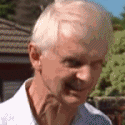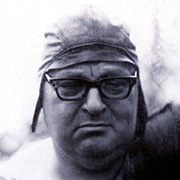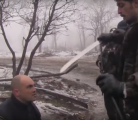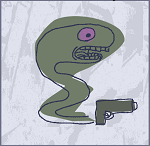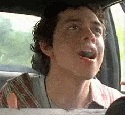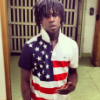|
I noticed that there wasn't a thread devoted to the art of essay writing, so I thought I'd go ahead and make one. To get things rolling, Wikipedia has a nice working definition: quote:Essays are generally scholarly pieces of writing giving the author's own argument, but the definition is vague, overlapping with those of an article, a pamphlet and a short story. Simple enough! I'm going to devote the OP to a few of my favorite essays and essayists, with links to free, legal versions of them when applicable. Hopefully I'll be able to update it with recommendations as we go along. T.S. Eliot Most people probably read The Love Song of J. Alfred Prufrock or The Hollow Men in high school, and while Eliot is primarily remembered for his poetry, he was also an excellent essayist. He played the dual role of poet and critic, much like Coleridge and Sidney. Hamlet and His Problems This is one of his most widely known and most divisive essays. Eliot attacks Shakespeare's portrayal of Hamlet and the tendency of critics to adopt an interpretation of the character of Hamlet based on their own philosophy while ignoring the text of the play itself. This essay coins the term "objective correlative," making it an important piece of writing in the context of the New Criticism movement. Tradition and the Individual Talent Another instrumental piece of New Criticism writing. This was Eliot's first published essay, and you can him as a young artist trying to carve out a place for himself by challenging the greats that came before him. This essay challenges the very concept of tradition itself, and argues that the creation of art is a process of depersonalization. David Foster Wallace More commonly referred to as DFW, Wallace occupies an indisputable place in the pantheon of essay writing. He is infamous for his sprawling, maximalist style and his incredible attention to detail, but he also has a gift for pithy observations that cut right to the heart of the matter in question. Almost all of his essays are worth reading; I can only think of two that I didn't enjoy, and a few more that were simply mediocre. Federer as Religious Experience Widely considered to be one of the best pieces of sports writing ever. This is a pretty good introduction to Wallace's style without being overwhelming; if you enjoy this, you'll probably like almost everything else. If you've ever wondered if it's possible to make writing about watching tennis into something gripping, give it a whirl. David Lynch Keeps His Head Wallace was given permission to hang out on set during the filming of Lost Highway specifically because he wasn't going to try to interview Lynch. It's a great essay that looks at one strange, magical mind filtered through another. Film / television / pop culture are a common theme in DFW's essays, and he comes away from the entire experience with some really interesting things to say. Mark Twain Everyone knows Mark Twain. His essays are almost completely ignored in favor of his fiction, which is a real shame. Predictably, a lot of his essays are humorous, but some of his best essays are very frank, unfiltered thoughts about history and society. What is Man? This essay is written as a dialogue between a Young Man and an Old Man, discussing, as you might have guessed, what it means to be a human being. While this would probably be a trite gimmick in less skilled hands, Twain approaches it without pretense. It's a very honest essay that lays bare Twain's own moral wrestling matches. To the Person Sitting in Darkness This is a fiery, biting bit of satire that targets imperialist policies. Specifically, it is written in the context of the Boxer Uprising, the Boer War, and the Philippine-American War. For people that are only familiar with his fiction, it will probably be surprising how scathing Twain can be, but that's why I love his essays. George Orwell Another author whose essays are virtually unknown. He wrote on a wide variety of subjects, and he also doesn't mind changing up his style now and then. As in his fiction, his essays largely deal with issues of social injustice and anti-totalitarianism. A Hanging This essay is stylized to the point that it's almost a short story, but it deals with actual events that Orwell witnessed serving with the British police during the occupation of Burma. It's a short, evocative piece that challenges social injustice on multiple fronts without feeling preachy or melodramatic. Politics and the English Language Here Orwell looks at the relationship between political orthodoxies and language - specifically, how politicians are able to use language to obscure truth rather than reveal it. He argues that vague, insincere prose is the mark of oppressive ideologies, and how people are able to hide their intent behind words that seem legitimate on the surface. An important piece of reading for anyone with an interest in political discourse. Jo Anne Beard While she isn't nearly as prolific as the others mentioned so far, Jo Anne Beard has a wonderful voice and a great sense of pacing that will draw you in to the sort of recursive, inevitable situations she writes about. She's a Guggenheim fellow with work published in a number of anthologies, including the 2007 collection of Best American Essays, which David Foster Wallace was serving as the editor for. The Fourth State of Matter A beautiful and heatbreaking account of the Gang Lu shooting at the University of Iowa. I'm really impressed by the way Beard moves around the periphery of the event instead of focusing entirely on it. The shooting itself is such a small part of the essay, but the way that she paints the lives of the people involved makes it that much more of a gut punch. Michael Paterniti Paterniti is someone that I've just recently run across, but I absolutely love almost everything he's done. Most of his essays were written for Esquire and GQ, but his writing is really on a completely different level than most of the other writers they have onboard. The Long Fall of One-Eleven Heavy I came across this while reading about the recent Malaysian flight disappearance, and it may just be the best essay I read all year. His voice in this piece is just hypnotic. He's got a great ear for prose and a great eye for detail. He avoids the obvious and sucker punches you with the small things. Just read this and thank me later. The Last Meal Paterniti has a knack for getting into the strangest situations. This essay details his experience sharing an illegal meal of ortolan with a former President of France just before his death. The piece has a fragile, somber beauty to it that mirrors the subject matter. It's a more understated bit of writing than the previous essay, but I still highly recommend it. That's all I've got for the time being. If anyone wants to pitch in and discuss their favorite essays, or discuss essay writing itself, please feel free!
|
|
|
|

|
| # ? Apr 25, 2024 03:07 |
|
BORGES LANGUAGE http://www.alamut.com/subj/artiface/language/johnWilkins.html KAFKA https://sites.google.com/site/jimeikner/home/borges/kafka-and-his-precursors FOUCAULT WHATS AN AUTHOR http://www.movementresearch.org/classesworkshops/melt/Foucault_WhatIsAnAuthor.pdf
|
|
|
|
From David Forster Wallace, the one that always sticks in my mind is Shipping Out, detailing his experiences on a luxury cruise. It sounds like a bit of a dull premise, but he does a fantastic job of conveying the gaudy banality of the cruise, and the essay is both very witty and insightful.
|
|
|
|
Historic Doubts relative to Napoleon Bonaparte by Richard Whately. A satirical essay written by a theologian who was apparently quite annoyed at the attacks being made on the historical accuracy of the Gospels. It takes the methods used by rationalists such as David Hume and uses them to argue that Napoleon never existed. Its an amusing little essay but reading it is slightly unnerving as it seems eerily similar to the endless conspiracy theories which flood the internet after every major event that happens now.
|
|
|
|
I've been reading a lot of essays by George Orwell, and recently worked my way through a collection of his essays. Here's a few that stand out The Spike George Orwell documents his time as a tramp staying overnight in a Salvation Army temporary shelter. He details the abuses of the officers and the poor accommodation, from freezing concrete sleeping cells to being forced to share one bath with dozens of fellow tramps. Thanks to his upbringing he was recognised as a gentlemen who had fallen on hard times and given preferential treatment. He also witness the staff enjoying much better food and then dumping what they didn't eat. Interspersed with his account are Orwell's thoughts on the role of this type of relief program, and that it seems more punitive then helpful. Marakech a short account of his time in Morocco shortly before the start of WWII and what he witnessed. Its a commentary on colonialism and the attitudes of European visitors to the colonies. Orwell also takes time to detail the plight of the Moroccan Jewish community and how despite being the poorest city dwellers they were still victims of the Anti-Semitic smears important from Europe to the native population. The absurdity of accusing a group of controlling all money when entire streets are too poor to afford cigarettes stands out in my mind. Its quite bleak. Charles Dickens A lengthy examination of Charles Dickens personal beliefs and how they come across in his writing. The essay covers Dickens entire published work and demolishes quite a few myths that have been built up about him over the years. It changed my mind on the man and gave me a greater understanding and appreciation of his works. Arthur Koestler very similar to the Dickens essay, though even more authoritative since Koestler was not only a contemporary of Orwell but the two had conversed on a number of topics. The essay uses Koestler's bibliography to map out the authors changing political outlook, from loyal servant of the Soviet Union, who would and did risk his life as a spy and friendly journalist. Too a disillusioned pessimist no longer certain of anything including himself. Full of titbits about the man's life and how and why some of his more famous works like Darkness at Noon came to be. How the Poor Die similar in circumstances to the Spike, how the poor die is an autobiographical account of Orwell's impoverished life in Paris, specifically the time he had to check in at Hopital X in their charity wing while suffering from pneumonia. In addition to receiving the cheapest possible care, the patients were also subject to total neglect, until a Dr wished to use them as a guinea pig for an experimental procedure, or wished to use them to test medical students diagnosing abilities. Anti-Semitism in Britain written during WWII exploring British anti-Semitic attitudes. The essay argues that the war didn't damage anti-Semitic attitudes as much as might be believed it merely drove it underground mainly out of fear that publicly expressing anti Jewish statements maybe interpreted as pro German. It also hypothesises that anti-semitism might actually be getting worse in Britain due to the enlarged Jewish population leading to greater friction and the persistence and growth of the idea that the war was for the Jews benefit. Quite a depressing read.
|
|
|
|
Grizzled Patriarch posted:I noticed that there wasn't a thread devoted to the art of essay writing, so I thought I'd go ahead and make one. Eliot expresses some pretty dumb opinions here, but somehow the footnote manages to be the dumbest. Eliot posted:I have never, by the way, seen a cogent refutation of Thomas Rymer’s objections to Othello. For those not familiar with Rymer's essay, Eliot is revealing himself to be racist as hell here: http://www.angelfire.com/oh5/spycee/rymer.html
|
|
|
|
Yeah, Eliot's argument is pretty flawed (especially since the entire piece is pretty much an example of the exact same thing he's accusing other critics of doing) and he approaches the entire situation with an unjustified sort of authority, but it's an important piece in the context of critical theory. It's also kind of funny to see how hard Eliot was peacocking early on. I've read that the footnote is meant to be a joke, but if it is, it's pretty tasteless. An otherwise serious essay is probably not the time or place for it, which makes me think that the "joke" defense is just an apologia for a man who had some pretty lovely opinions.
|
|
|
|
Just found this thread, so I hope it's okay if I crosspost from the I Just Finished thread:Gertrude Perkins posted:I Must Not Think Bad Thoughts: Drive-By Essays On American Dread, American Dreams, by Mark Dery. I picked this up due to the title, not having heard of Dery before. He's a cultural critic, described in the foreword (by Bruce Sterling) as the intellectual equivalent of a shock jock, puncturing the trite politeness of cryptofascist conservatism and boring political correctness (paraphrasing, of course). I was expecting to find Dery a grim libertarian "the answer must be somewhere in the middle" bore.
|
|
|
|
Crossposting is totally fine, and thanks for putting that book on my radar! I read one of his essays about people that post videos of pet centipedes eating on Youtube (I think he called it "predator porn"), and I had no idea the author was so prolific.
|
|
|
|
I think Orwell is a much better essayist than a novelist, frankly. He is, above all, ruthlessly intellectually honest. "Benefit of Clergy," his essay on Salvador Dali and the notion of "wicked art" is especially interesting and provocative. Zadie Smith and Michael Chabon have some good essays too.
|
|
|
|
Just ran across this again, an essay by Lacan on Poe's The Purloined Letter. It is pretty dense, though it's also probably one of Lacan's more approachable pieces. http://www.lacan.com/purloined.htm It is essentially an exploration of the concept of "repetition automatism" that Freud struggled with, and it's pretty interesting to see a deeply philosophical / psychoanalytical approach to one of the stories that effectively invented the genre of detective fiction.
|
|
|
|
Recently finished John Barkers review of Anarchy in the UK: The Angry Brigade by Tom Vague. John Barker was an active member of the group and found the book -mostly reprinting of various press cuttings by or about the group to be rather lack lustre- whilst criticising the book he also reflects on the period and his participation in the Angry Brigade (a British Urban Terrorist group active from 68-72* whom attacked property) and radical politics in general. He gives some interesting incites into the time and remains committed to his ideals but heavily criticises the actions of the Brigade and groups like it explaining that political terrorism isn't capable of bringing about a Revolution. He also criticises the political left for its tactics and attitudes. Very strongly recommended for those interested in 60's-70's social history. http://libcom.org/library/review-angry-brigade-vague-book-barker *Though actions carried out by people claiming to be the Angry Brigade after the original group left continued on into the seventies.
|
|
|
|
Copy-pasted from the Just Finished thread: Just read through Meat Market: Female Flesh Under Capitalism, by Laurie Penny. A short book, collecting four essays on different aspects of capitalist imposition and oppression of women's bodies. A lot of what Penny writes here, particularly the first two chapters (on the sex industry and eating disorders, respectively), is expanded on and refined in her excellent book Unspeakable Things, which came out last year. The last chapter, on housework and domestic labour, is uncomfortable reading, especially given that it's one of the areas in which feminist activism has stalled (or as Penny puts it, 'quietly crawled into a corner and died'). But the third was the one that really stuck out to me: an impassioned and pretty much spot-on critique of the old guard of feminism's ironic and frustrating reluctance to recognise trans women. It feels quite prescient - this book was published in '010, but all the familiar trans-erasing names are there, from Julie Bindel to Germaine Greer, both of whom were recently and publically taken to task for their transphobia. It's a short read (I polished it off in an hour), but it serves as a good introduction to Laurie Penny's work, and sets the stage for the essential follow-up.
|
|
|
|
Paul Valery's essay The Yalu is something I've been meaning to read for a while and finally got around to. It's framed as a discussion about the differences between Eastern and Western culture between an anonymous European (possibly Valery himself) and a Chinese scholar. The essay offers an interesting argument about the possibility of "knowing too much" and using intelligence as a tool to mask or evade the awareness of mortality. Valery's writing has a compelling style; here's a short passage that Cormac McCarthy borrowed for the Blood Meridian's epigraph:quote:You are in love with intelligence, until it frightens you. For your ideas are terrifying and your hearts are faint. Your acts of pity and cruelty are absurd, committed with no calm, as if they were irresistible. Finally, you fear blood more and more. Blood and time.
|
|
|
|
Just finished two book length essays, the first is A Brief History of Superheroes by Brian J. Robb. Its a history of American comic books focusing on superhero's naturally. Though it does go beyond the remit to briefly describe the evolution of comics from 18th century satires and newspaper funnies. It covers the entire American comic book industry thought of course focusses mainly on DC and Marvel with all the other comics companies relegated to also ran footnotes. Still as a DC/Marvel history its pretty comprehensive in both descriptions of the comic characters and the often shady and convoluted business deals that built entrenched and at times wrecked the industry. A history involving the Mafia, American military, conservative sexologists with axes to grind etc. As someone with little to no knowledge of American superhero comics beside the films I found to be an enjoyable read though I was a little disappointed that some very interesting points for discussion were sacrificed for more details about DC backroom deals. I think its strongest sections are chapters 5 and 6 detailing the use of comics during WWII and the comics code era, both show the rather dark side of what seems on the surface to be harmless wish fulfilment. The other essay is rather different. Free Comrades Anarchism and homosexuality in the United States 1895-1917 by Terence Kissack. its a history of the American Anarchist movements sexual politics of which homosexuality was a major feature. It starts with the Oscar Wilde Trial and the effect this had on American radicals, and then continues up to the modern era, 1970's to the present. It mainly focuses on the works and views of Berkman, Benjamin Tucker and Emma Goldman but does look at the works of lesser known Anarchists like Ben Reitman (Goldman's lover) Lloyd and Ellis. The basic premise of the essay is that the first group to take Homosexuality seriously in the USA beyond homosexuals were Anarchist and a small number of Sexologists. Its well researched with extracts from now well out of print works and quotes freely. One issue I have with the work is that it seems to cover up some rather disturbing details, in the last chapter the one about the modern times it cites Hakim Bey and a publication called gayme and its reproduction of Bey's work as an example of the continued relevance anarchist ideas have for Gays. At no point does Terrance (I checked the footnotes and index) acknowledge that Gayme is a publication of NAMBLA or that Hakim Bey is an admitted paedophile or that the work that Gayme published (TAZ: Temporary Autonomous Zones) is linked by Bey to his paedophilia. Instead the book prefers to covertly refer to paedophilia as `intergenerational relationships`. There are in total about two paragraphs in a 200+ page book covering this so its hardly a major problem, though given Terrances tone and criticisms of others hypocrisy's and use of innuendo and code words its rather strange to see him do the same. Overall as a history of American attitudes to homosexuality its informative and covers a lot of ground that most other histories wouldn't touch.
|
|
|
|
Would the Coates book count as a long essay?
|
|
|
|
Falstaff Infection posted:I think Orwell is a much better essayist than a novelist, frankly. He is, above all, ruthlessly intellectually honest. "Benefit of Clergy," his essay on Salvador Dali and the notion of "wicked art" is especially interesting and provocative. "All left-wing parties in the highly industrialized countries are at bottom a sham, because they make it their business to fight against something which they do not really wish to destroy. They have internationalist aims, and at the same time they struggle to keep up a standard of life with which those aims are incompatible. We all live by robbing Asiatic coolies, and those of us who are 'enlightened' all maintain that those coolies ought to be set free; but our standard of living, and hence our 'enlightenment', demands that the robbery shall continue. A humanitarian is always a hypocrite..." Essay on Rudyard Kipling. I love his essays and re-read them regularly. I also like his "As I Please.." pieces but I don't have the collected work, so that's harder to re-read. I read a lot of science/nature essays (Best American Science Writing of 20xx, for example). It's a good way for me to keep up with some recent developments and criticisms. I like the short observations of Sei Shonagon and Robertson Davies, and the long biographical essays of John E. Wills (Mountain of Fame). Dickens Sketches by Boz is good, too. I think I lean heavily toward the non-literature essay and really should try to explore something different. I am, however, lazy. :p
|
|
|
xcheopis posted:I love his essays and re-read them regularly. I also like his "As I Please.." pieces but I don't have the collected work, so that's harder to re-read. anilEhilated fucked around with this message at 12:23 on Oct 5, 2015 |
|
|
|
|
I read a lot of his columns too. They're pretty enjoyable, although they also show that even Orwell had terrible opinions sometimes.
|
|
|
|
Silver2195 posted:I read a lot of his columns too. They're pretty enjoyable, although they also show that even Orwell had terrible opinions sometimes. He does. I tend to give him a bit of break on those, considering his background.
|
|
|
|
I just ordered a collection of essays published in a single volume by Christopher Hitchens entitled "Arguably" off amazon. Reviews on goodreads are unanimously praiseworthy along with it being included in the top 10 books of the year by the NYT. Subjects covered include public figures, totalitarianism, wine, and everything in-between. 
Immortan fucked around with this message at 03:36 on Oct 9, 2015 |
|
|
|
Immortan posted:I just ordered a collection of essays published in a single volume by Christopher Hitchens entitled "Arguably" off amazon. Reviews on goodreads are unanimously praiseworthy along with it being included in the top 10 books of the year by the NYT. Subjects covered include public figures, totalitarianism, wine, and everything in-between. Oh, hey, that's available at the library, awesome.
|
|
|
|
Immortan posted:Reviews on goodreads are unanimously praiseworthy along with it being included in the top 10 books of the year by the NYT That's usually how you tell that a book is poo poo.
|
|
|
|
Baka-nin posted:Charles Dickens A lengthy examination of Charles Dickens personal beliefs and how they come across in his writing. The essay covers Dickens entire published work and demolishes quite a few myths that have been built up about him over the years. It changed my mind on the man and gave me a greater understanding and appreciation of his works. This something that really opened my eyes to the possibilities of critical analysis. It primarily explores the social aspect of Dickens' work. Orwell's conclusion is that despite his stirring powers of imagination, Dickens was rather half-formed as a social writer, but not one easily dismissed. Orwell posted:All through the Christian ages, and especially since the French Revolution, the Western world has been haunted by the idea of freedom and equality; it is only an idea, but it has penetrated to all ranks of society. The most atrocious injustices, cruelties, lies, snobberies exist everywhere, but there are not many people who can regard these things with the same indifference as, say, a Roman slave-owner. Even the millionaire suffers from a vague sense of guilt, like a dog eating a stolen leg of mutton. Nearly everyone, whatever his actual conduct may be, responds emotionally to the idea of human brotherhood. Dickens voiced a code which was and on the whole still is believed in, even by people who violate it. It is difficult otherwise to explain why he could be both read by working people (a thing that has happened to no other novelist of his stature) and buried in Westminster Abbey. BravestOfTheLamps fucked around with this message at 09:03 on Oct 10, 2015 |
|
|
|
Immortan posted:I just ordered a collection of essays published in a single volume by Christopher Hitchens entitled "Arguably" off amazon. Reviews on goodreads are unanimously praiseworthy along with it being included in the top 10 books of the year by the NYT. Subjects covered include public figures, totalitarianism, wine, and everything in-between. I have that and like it. One bad thing about Hitchens is that a lot of his essays are geared towards very specific current events as he was SO prolific, so many of the essays in that collection maybe don't really stand the test of time.
|
|
|
|
The other bad thing about Hitchens is that he was a complete idiot.
|
|
|
|
Please explain? Seems like you're trying to troll this thread.
|
|
|
|
anilEhilated posted:Really, it's a shame these are so obscure. I did a paper on his journalism a couple years back when still in school and was really surprised by how much I enjoyed this column since I can't stand him as a writer. The collected columns are in Orwell in Tribune, compiled and edited by Paul Anderson. It has a nice chunk of introduction, with biographical material of Orwell, as well as some history of the Left. I still don't own it but at least the librarians don't care how often one checks out a book. Or, they at least won't mock you to your face. The Hitchens essays are good in the sense of being well-written but he comes across as being pompous and incapable of writing a good English sentence. (That darn Orwell, again!) Next on my list will be a re-read of Molly Ivens.
|
|
|
|
Paper With Lines posted:Please explain? He used to be a trot, then turned into an awful neoconservative who advocated for bombing muslims out of existence while also being a pillar of the 'new atheism'.
|
|
|
|
BravestOfTheLamps posted:This something that really opened my eyes to the possibilities of critical analysis. It primarily explores the social aspect of Dickens' work. Orwell's conclusion is that despite his stirring powers of imagination, Dickens was rather half-formed as a social writer, but not one easily dismissed. Yeah its a pretty good essay, helped me form my own opinions on the man, and gave me new insights into Tale of Two Cities. A human heart posted:He used to be a trot, then turned into an awful neoconservative who advocated for bombing muslims out of existence while also being a pillar of the 'new atheism'. Unless he degraded further toward the end of his life this seems to be a crass overstatement. I can't stand him myself, I had to stop reading three collections of his essays a page or two in due to his rather dull tone. But the one I did finish God is not Great: was fairly balanced. It was clear he was bitter about the flack he took for supporting the Iraq war but he also heavily criticised the Bush administration, Christian movements and Buddhist and Hindu movements and Jewish practices. He also acknowledged good deeds by some religious figures and people. Hardly the views of a `lets bomb the middle east to glass` advocate.
|
|
|
|
Baka-nin posted:Yeah its a pretty good essay, helped me form my own opinions on the man, and gave me new insights into Tale of Two Cities. quote:“Watching the towers fall in New York, with civilians incinerated on the planes and in the buildings, I felt something that I couldn’t analyze at first and didn't fully grasp (partly because I was far from my family in Washington, who had a very grueling day) until the day itself was nearly over. I am only slightly embarrassed to tell you that this was a feeling of exhilaration. Here we are then, I was thinking, in a war to the finish between everything I love and everything I hate. Fine. We will win and they will lose. A pity that we let them pick the time and place of the challenge, but we can and we will make up for that.”
|
|
|
|
cloudchamber posted:“Watching the towers fall in New York, with civilians incinerated on the planes and in the buildings, I felt something that I couldn’t analyze at first and didn't fully grasp (partly because I was far from my family in Washington, who had a very grueling day) until the day itself was nearly over. I am only slightly embarrassed to tell you that this was a feeling of exhilaration. Here we are then, I was thinking, in a war to the finish between everything I love and everything I hate. Fine. We will win and they will lose. A pity that we let them pick the time and place of the challenge, but we can and we will make up for that.” Yeah, that's an insufferable and callous statement, and on par with others he's made. But that's not even remotely close to a kill all the muslims sentiment that was the original accusation.
|
|
|
|
quote:Then it was Hitchens at his most bellicose. He told us what the most serious threat to the West was (and you know this line already): it was Islam. Then he accused the audience of being soft on Islam, of being the kind of vague atheists who refuse to see the threat for what it was, a clash of civilizations, and of being too weak to do what was necessary, which was to spill blood to defeat the enemy. Along the way he told us who his choice for president was right now — Rudy Giuliani — and that Obama was a fool, Clinton was a pandering closet fundamentalist, and that he was less than thrilled about all the support among the FFRF for the Democratic party. We cannot afford to allow the Iranian theocracy to arm itself with nuclear weapons (something I entirely sympathize with), and that the only solution is to go in there with bombs and marines and blow it all up. The way to win the war is to kill so many Moslems that they begin to question whether they can bear the mounting casualties.
|
|
|
|
A human heart posted:This quote is from PZ Myers, a fairly prominent new atheist himself(so someone inclined to be sympathetic to Hitchens), about a speech Hitchens gave in 2007. The blog post it comes from is here: http://scienceblogs.com/pharyngula/2007/10/14/ffrf-recap/ It's fairly unambiguous. That's strange (the date) God is not Great was published around the same time and he directly contradicts his main argument there. I know he was one of those guys who ended up on the opposite side politically but I thought it would take years not months. Oh well guess he deteriorated quicker then I thought.
|
|
|
|
Hitchens never advocated genocide. He was very sensitive to the dangers of extremism and totalitarianism, which he saw and reported on first-hand. His experience as a leftist opened his eyes to cant and extremism. His support for the war against Iraq is certainly a weak point and many of his arguments look like awkward post-facto justification. He did get too close to neo-cons and many of his arguments on political matters are specious but it is hard to accuse him of advocating indiscriminate violence, though he did support resistance against religious extremists. Read his essays and you'll see that. Don't rely on dopey quotes by third parties (including mine).
|
|
|
|
Apparently a new collection of essays is going to be published on the 24th of this month.
|
|
|
|
The Numbing of the American Mind: Culture as Anesthetic by Thomas De Zengotita from Harper's is one of my favorite essays ever. I'm on my phone right now so I'll link the pdf when I get home.
|
|
|
|
A human heart posted:This quote is from PZ Myers, a fairly prominent new atheist himself(so someone inclined to be sympathetic to Hitchens), about a speech Hitchens gave in 2007. The blog post it comes from is here: http://scienceblogs.com/pharyngula/2007/10/14/ffrf-recap/ It's fairly unambiguous. Come the gently caress on. We all hate the neocon side of Christopher Hitchens, but you really need to follow up to make sure that there is not exaggeration. Is it too much to ask you to go to the source? "I'm going to fight these people, and every other theocrat, all the way." These people do not refer to every Muslim on earth. He refers to the dangerous radicals who wage war for an ends like the ones Reza Aslan suggests with the Islamic State. If PZ Myers cannot see the distinction between a neocon beating his chest and genocidal declarations, then really, what does that say about Myers' ability to judge here? Killing a Muslim moderate would have given Christopher nobody left to argue with, anyway. Baka-nin posted:That's strange (the date) God is not Great was published around the same time and he directly contradicts his main argument there. I know he was one of those guys who ended up on the opposite side politically but I thought it would take years not months. Oh well guess he deteriorated quicker then I thought. Hitchens never suggested genocide. This is the QnA to which PZ Myers refers. The quote is around 5m06s. https://www.youtube.com/watch?v=pYiCizcm9wA It helps to watch the source. PZ Myers is putting words into Hitchens' mouth. I will agree that Mr. Myers is right to call Hitchens acting in brutish Neocon form in this QnA, but he takes it too far to call him a genocidal maniac. Maniac, yes; genocidal, no. Hitchens had to put his peer into hiding because he wrote a loving book (Salman Rushdie). Nobody should have to go into hiding for writing a book. I don't blame Hitchens at all to want to put an end to bloodthirsty theocrats. I come from a Mormon background, and Mormons have had their own sanguinary moments; religion is tragic stuff. I would not want modern Mormons killed, but Brigham Young should have been put into prison for life for his crimes against the Baker-Fancher wagon train.
|
|
|
|
Umberto Eco died today, which is a major bummer. He was as talented an essayist as a novelist - here is one of his most widely cited essays, Ur-Fascism: http://www.pegc.us/archive/Articles/eco_ur-fascism.pdf Everyone owes it to themselves to read it, if they haven't already.
|
|
|
|

|
| # ? Apr 25, 2024 03:07 |
|
Grizzled Patriarch posted:Umberto Eco died today, which is a major bummer. He was as talented an essayist as a novelist - here is one of his most widely cited essays, Ur-Fascism: Thanks for that, it was very interesting. I'm currently reading a collection of essay's by Eve Rosenhaft about Communist street fighters in the dying days of Weimar Germany, quite illuminating for me and dispels a few often quoted myths about this period. http://libcom.org/files/eve-rosenhaft-beating-the-fascists-the-german-communists-and-political-violence-1929-1933-2008.compressed.pdf
|
|
|


